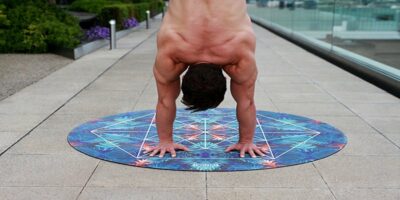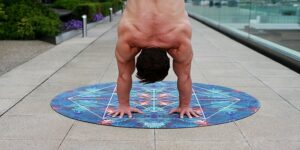PUAs Tell You How to Change to Attract Women. Here’s Why That Doesn’t Work
Renowned Business strategist Simon Sinek has studied and modeled some of the most successful brands in the world, aiming to understand their formulas for success. Since companies are essentially about relationships—the relationship between a brand and its customers—Sinek was looking for critical elements to that relationship. What he professes is that the most successful organizations do not first figure out what consumer demand is and then create products to meet it; rather, they design products from inspiration and then determine how to market them. In other words, the most successful brands have been built from what feels inherently right and inspired to the founders, who then determine their target demographic and the appropriate marketing strategy based on the product developed. Otherwise, the company would be constantly chasing customers and manipulating itself based on changing trends, rather than becoming the trendsetter.
Following Sinek’s lead, the same concept can be applied to all relationships, not just in the business world. If we manipulate who we are to meet others’ demands—if we tell them what we think they want to hear or be who we think they want us to be—then we attract the kinds of people into our lives who require us to remain that altered version of ourselves, at least if we want them to stick around. In this, we lose ourselves and become a puppet to our relationships, constantly manipulating who we are and what we do to meet others’ needs. This is a surefire path to the loss of self-esteem and “groundedness” as well as a lack of authentic, meaningful connections.
Why Do We Alter Ourselves?
When people alter themselves consciously to become who they think others want them to be, it’s either because they are trying to manipulate the other person in some way or because they are afraid of rejection. Most people are scared that others won’t like the real them, and so they manipulate themselves rather than be rejected or abandoned. Often, this process is so ingrained, however, that they don’t even realize they’re doing it—they don’t notice they are not being authentic. At this point, being who others want them to be is automatic. And further, most people can’t seem to figure out who the authentic self really is, even if they wanted to be “real.”
Whether conscious or unconscious of the self-alteration, this is the work of the social chameleon. If the chameleon can just figure out who the other person wants, he can change himself into becoming that person. And then he can attract anyone because he is essentially no one and everyone simultaneously. He is everything others want him to be, but no one authentically inside. But humans are not chameleons; and so humans that do this eventually get very sick of it, and they either have a sudden breakdown and seek help to figure out who they truly are, or they take to numbing themselves through addictions, because the lack of authenticity, of a self, of a center, is very painful.
Wouldn’t it just be easier and ultimately more fruitful to just be YOU and express that person in the world? Think about this the next time you meet someone new or even when you’re with someone you’ve known for a long time. When you show her him or her the real you, you will find out quickly if this relationship is right for you. But to do this consciously and courageously, you have to be willing to let people go if the dynamic isn’t right. You also have to be willing to love and accept yourself fully and unconditionally, no matter who likes or doesn’t like you. When others don’t like you, you might take it as a rejection, OR you might just recognize that your authentic self was simply not a match for that person’s authentic self, and that you are filtering out and weeding through the mismatches to find the matches. And if you just keep being authentic…you WILL find them.
Who is the Real You?
Now we come to the tricky question. Because really, WHO are you? This questions lends itself to the realm of philosophy, conjuring questions of the authentic being inside, or the YOU without labels and categories. That is all important to explore and discover. But to keep things simple, we might start by just focusing on your authentic needs and wants. What is it you truly want? What is it you really need? It’s important to get clear on this, and to understand that these wants and needs will be fluid throughout life. Sometimes you may want to be silly and other times serious. Some days you may need alone time and other days you need connection. If you start becoming more aware of what you need and want in each moment, you will begin to have more control of behaving and thinking in ways that give you the opportunity to meet those needs and wants. This I called living naturally—being who you naturally are. And when you are authentically able and courageously willing to express who you are, including what you want and need, you will more often attract the kinds of people that are in line with your wants and that can more often help meet your needs.
This is not to say that other individuals should be responsible for giving you what you want or meeting your needs fully. Because they won’t—they can’t. Just as you cannot be responsible for meeting others’ needs and wants all the time. However, by being the authentic version of you—showing how you truly feel and saying what you really mean—in personal relationships, you’re more likely to meet people that will honor and support your authentic needs and wants.
If you’re having much trouble discovering what you need and want, I would highly suggest seeing a therapist or coach to get clear. There is almost nothing more important and liberating than getting to know who you really are, and accepting and expressing that person.
What if the Real You Feels Unhealthy?
So what if what you need and want seems unhealthy? What if you’re default or “natural” state seems to lead to disastrous relationships and situations? Then I would propose it’s not your natural state. This is not the REAL YOU. You are not inherently flawed! Rather, the unhealthy defaults are more likely the strategies you learned to get your needs met and fulfill your desires early in life. That’s good news. Because the fact is there are a variety of endless strategies people can use to meet their authentic needs and wants. You just have to learn new habits! For the most part, my opinion is that people’s natures are inherently good, but their habits—the tactics they have learned or created for getting what they naturally want and need—can be unhealthy.
Again, changing one’s habits, especially if they are deep-seated and long-running, may—and probably will—require the help of a therapist or coach. You will need to understand at least why your current habits are unhealthy and how they got there, which others strategies would be healthier and how to create them, and how to be held accountable for replacing old, unhealthy habits with new, healthier ones. This can be a long and arduous process, but because authentic relationships and self-acceptance are two of the absolute most crucial elements to a happy life, there is almost no endeavor more important than discovering healthy ways to express your authentic self.
Most of us have unhealthy habits leftover from childhood. Many of us are not very aware of what our authentic needs and wants are. A lot of us are also scared to show our real selves, afraid that people won’t like us and that we’ll be rejected if they discover who we truly are. This is all normal—we’re all in this boat together. But the sooner you start working on discovering and loving the real you, learning healthy ways to express that self, and the courage to be authentic with others, the sooner you will begin to attract people into your life who will like you for you. This is surely the only path to creating long-lasting, healthy, fulfilling, beautiful relationships. And what could be more important than that?













1 Comment
You must be logged in to post a comment Login